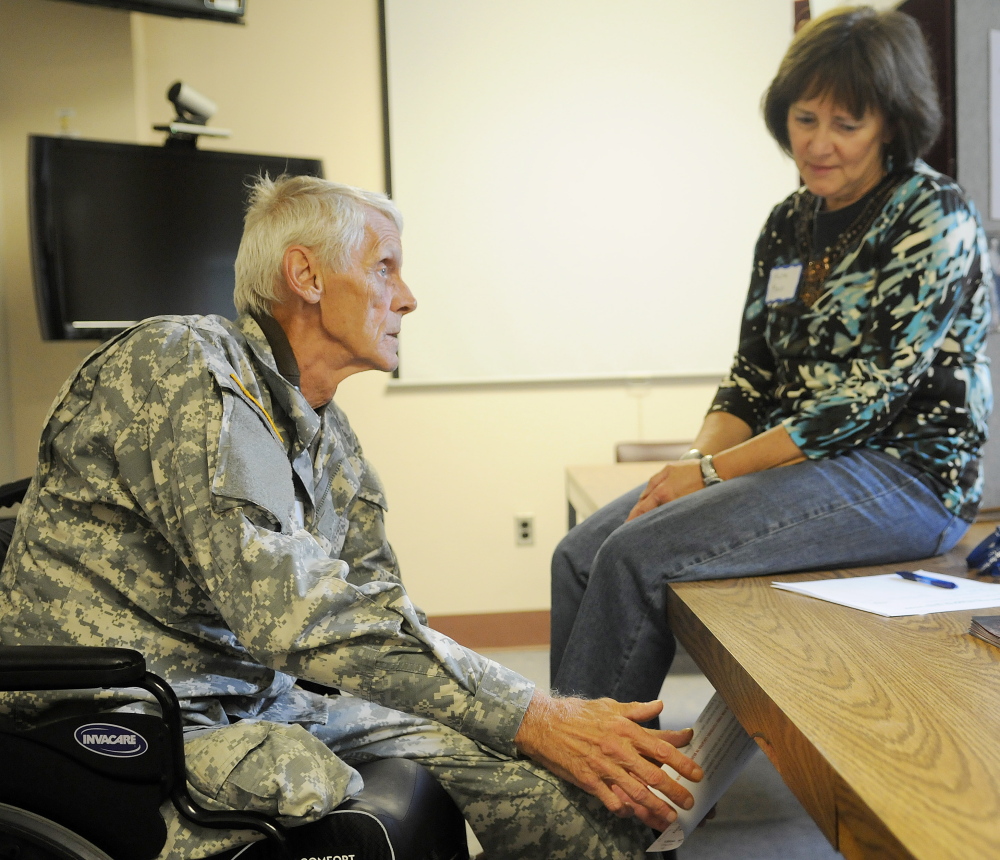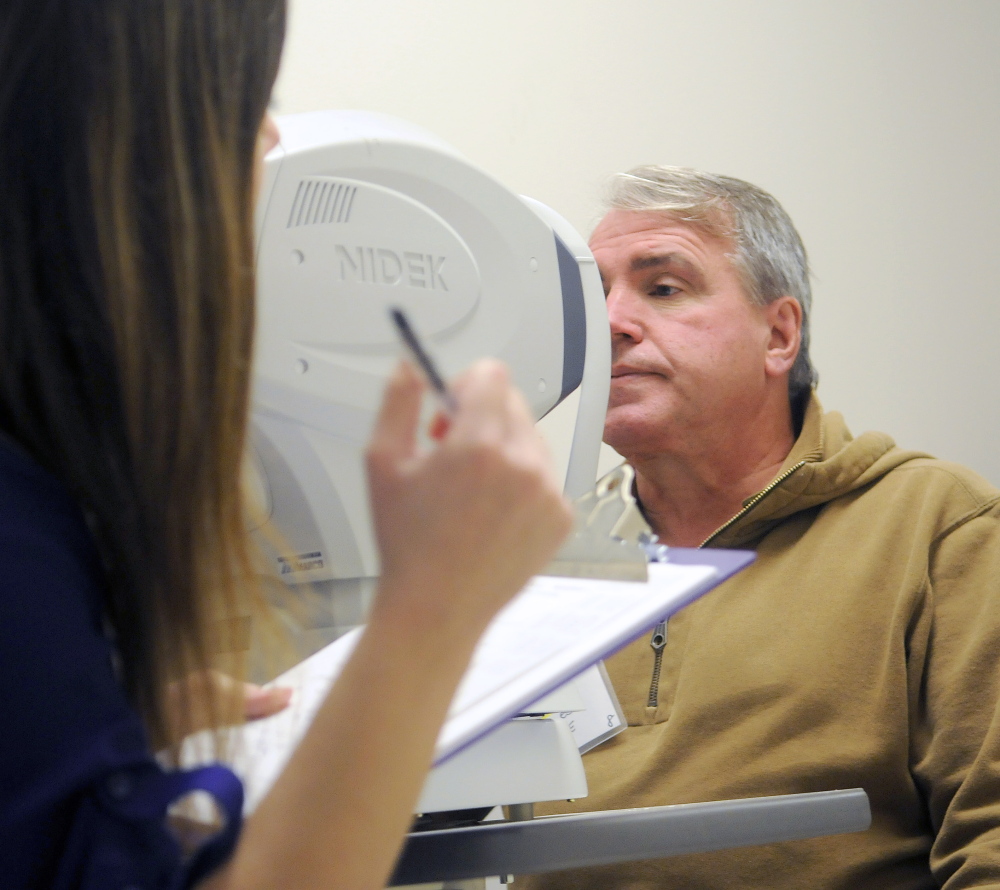AUGUSTA — Saturday was the third time Aaron Brooker attended a Maine Homeless Veterans Stand Down, an annual event that provides homeless veterans services such as medical care and clothing for the winter.
But this time, Brooker was volunteering at the VA Maine Healthcare Systems-Togus event to help other veterans get assistance.
“I just knew when Stand Down came around again this year, I had to do it,” he said Saturday while sitting in the medical center’s cafeteria. “I had to give something back. There was no question or hesitation.”
Brooker, 44, said he went to the last two Stand Downs during two stints of homelessness while living in Bangor. He previously had lost his house in Brewer and lived in a homeless shelter and transitional housing. After going through the Togus chemical dependence recovery program, he secured permanent housing in May in Augusta through Community Housing of Maine, he said.
Although he had been enrolled in the VA health care system since 2001, Brooker, a U.S. Coast Guard veteran, said he initially resisted assistance because he didn’t want to feel as though he were trapped in an entitlement system.
“No one likes to give up. No one likes to admit they can’t do anything on their own. But for me, I finally reached a point that I said I can’t do this on my own,” Brooker said.
He said he wants to help his fellow veterans find the services they need and make people aware of the prevalence of homelessness among veterans.
“I didn’t want to be homeless. I didn’t go to my guidance counselor and say, ‘Yes, someday I want to be a homeless, chemically dependent, messed-up vet.’ But that’s the reality,” Brooker said. “Making people aware is a crucial step in removing the stigma of asking for help, and for the individual, finding the humility to accept that and work within the framework.”
MANY STILL HOMELESS IN MAINE
The U.S. Department of Veterans Affairs unveiled a plan in 2009 to end veteran homelessness by the end of 2015. Although the number of homeless veterans has shrunk since then, the department is still a long way from its goal.
The annual Point-in-Time Count conducted in January found about 50,000 homeless veterans in the U.S., a drop of around 33 percent from the nearly 75,000 found in 2010, according to a news release from the VA, the U.S. Department of Housing and Urban Development, and the U.S. Interagency Council on Homelessness.
In Maine, the survey found 525 homeless veterans, according to Togus spokesman James Doherty.
The VA system in Maine has been hosting a Maine Homeless Veterans Stand Down for the last 17 years, Doherty said. The system transports veterans from homeless shelters in a dozen communities around the state to Togus for the day, he said.
“We just want to get the awareness out there that there are a lot of homeless vets, and there are a lot of services we can provide them,” he said.
On Saturday, 80 homeless veterans attended the event.
After the veterans arrived at Togus, they needed to stop at more than a dozen stations offering services, including a needs assessment, medical and dental care, legal advice, haircuts and information on housing and different types of benefits. After completing all the steps, the veterans were given clothing, boots and toiletries.
The veterans can decline most of the services, but they’re still required to stop at each one to make sure they know what’s available, Doherty said.
“Our big thing is, it’s not like we take care of them for this one day, and then the rest of year their lives suck. We want … to break the chain of homelessness,” he said.
HOUSING COMES FIRST
When homeless veterans first come to the VA system, Doherty said, the No. 1 priority is finding them some type of housing. He said that could come in the form of transitional housing or helping them secure HUD-Veterans Affairs Supportive Housing vouchers to pay for rent costs. After finding veterans housing, the VA system can help them deal with substance abuse or other issues affecting their lives.
Fairlee Albee, 51, an Army veteran at Togus on Saturday, said she’s been living in transitional housing at the Arthur B. Huot House in Saco for 16 months.
She said she’s unhappy with the VA system because she thought she would be eligible for the HUD-VASH vouchers, but she hadn’t been homeless long enough. But Albee said she found out about a couple of programs at the Stand Down she can apply for.
Send questions/comments to the editors.



